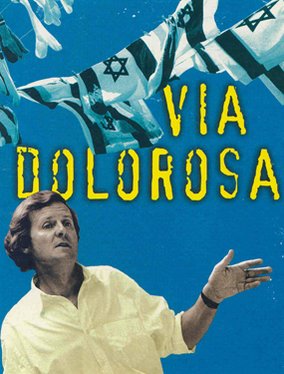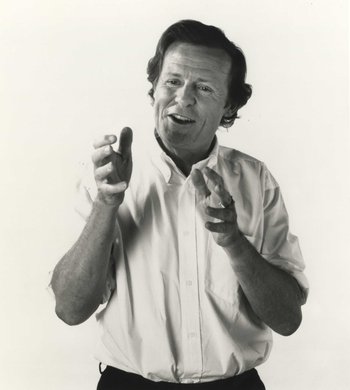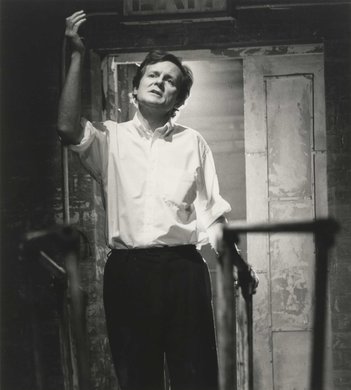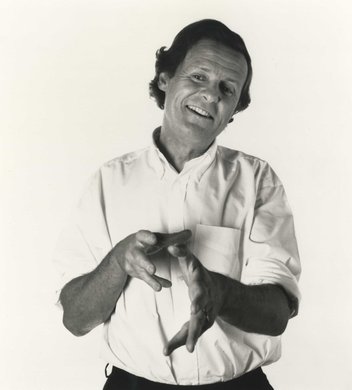This unique one-man show would be notable in any season, because not only did Sir David write the play, he was also its star. The previous fall in London, he took to the stage for the first time in his career and the result was a surprise, sold-out engagement for the Royal Court Theatre on the West End.
Lincoln Center Theater was very happy to announce that Hare has agreed to reprise his show for his many New York fans.
We presented the Royal Court production of VIA DOLOROSA for a limited run at the Booth Theatre. This was a theatrical account of Sir David's journey to the Middle East. This was a trip long in the making: he had been invited to Israel many times and had put off visiting for a variety of reasons. In 1997, when Hare turned 50 the same year that Israel also celebrated its fiftieth anniversary, he felt the timing was right to go.
The journey he took was also one of self-discovery, prompted by the realization that he had been unconsciously writing plays in recent years which focused on matters of faith and belief: for example, his play Racing Demon, about the Church of England, or his adaptation of Chekhov's Ivanov, both of which Lincoln Center Theater had produced in recent years at the Beaumont.
"People always say that in England we lead shallow lives,"; Sir David remarked recently. "Our lives must be shallow because we live in a country where nobody believes in anything anymore. My whole life I've been told, 'Western civilization? An old bitch gone in the teeth.' And so people say, 'Go to Israel. Because in Israel they're fighting for something they believe in.'"
During his visit to this epicenter of world religion, Hare was so moved by the people he met there that, upon returning to England, he decided to write VIA DOLOROSA, which takes its title--Latin for 'the path of sorrows—’from the famous street in Jerusalem.
Hare gives even-handed treatment to his portrayals of both Israelis and Arabs. And if the play provoked strong reactions from theatergoers, nothing could have please him more. In creating the piece, he felt the theater was the ideal forum for a thoughtful discussion about the Middle East today.
"I could have written an article," says Hare, "but journalism just doesn't stick. I know far more about subjects I've seen plays about than those I've read about in newspapers or magazines. It's rare for journalism to scour deep into the underlying meaning of a subject. Of course, reaction to this play will be diverse, but my claim has always been that people think more deeply when they think together. That's what theater does."
At the same time, I hope the play will be seen as a meditation on art," Hare continues. "Stephen Daldry, who is directing, says that the play only starts cooking when you forget it's about Israel and Palestine. I suppose the test of this play will be whether audiences respond to the questions that intrigue me: What does art add to this situation in the Middle East? How, if at all, does it illuminate?"



